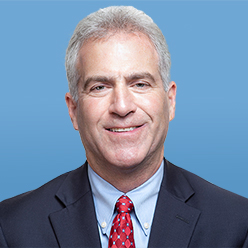An American president meets his Russian counterpart in Helsinki. Critics worry that he'll validate Russia's rule over its conquered neighbors, while human rights advocates fret that he won't discuss their issue.
Trump and Putin? Actually, it was President Gerald Ford and Leonid Brezhnev in Finland's capital in 1975 - although, at the time, Russia was the biggest piece of what was then the Soviet empire, and Moscow ruled Eastern Europe and the Baltics, and controlled nations far beyond. Critics, including a former California governor named Ronald Reagan, complained that because the Helsinki Accords called on its signatories to respect the borders of one another, the United States was ceding Soviet control over Eastern Europe in perpetuity.
But something else happened at Helsinki that proved far more consequential, and it holds important lessons for those with the foresight to look beyond Trump's disturbing approach to the Russia of Vladimir Putin and envision a world in which freedom and democracy are once again expanding.
With U.S.-Soviet détente in full swing, Brezhnev initiated the 1975 "Conference on Security and Cooperation in Europe" to further improve East-West relations. When 35 nations signed the "Final Act" on August 1, Brezhnev thought he had won a great victory and anticipated the positive reviews back home.
But the Helsinki Accords included a "Third Basket" of provisions that called on all signatories to respect human rights and basic freedoms within their borders. Though critics dismissed the language as window dressing, it gave political dissidents within the Soviet Union and their allies on the outside all the ammunition they needed to launch a revolution that help destroy Moscow's empire.
In the spring of 1976, a group of Soviet dissidents that included Natan Sharansky met in the apartment of physicist Andrei Sakharov and his wife, Elena Bonner, and decided to establish the Moscow Helsinki Group (MHG) to monitor Moscow's compliance with Helsinki's human rights provisions.
The move proved inspirational. MHG-like organizations soon sprang up across the Soviet empire - in Lithuania, Ukraine, Poland, Czechoslovakia, and elsewhere - eventually numbering 37. So, too, did such MHG offshoots as the Working Commission to Investigate the Use of Psychiatry for Political Purposes.
MHG was a particularly gutsy organization, issuing reports on Soviet human rights violations that it sent to Soviet leaders, Moscow's embassies in all 35 Helsinki countries, and foreign journalists. Meanwhile, Helsinki inspired Poland's workers to create a trade union and more people across the Soviet Empire to seek exit visas.
The Soviets cracked down, arresting some MHG leaders and draining the group by letting others leave, but it was too late. MHG replenished its ranks, other groups arose, more citizens came forward to report human rights violations, and Moscow's grip on power began to loosen across the empire. As William Hyland, a former top U.S. foreign policy official and editor of Foreign Affairs, later wrote, "If ... there was one point when the Soviet empire began to crack, it was at Helsinki."
If so, Helsinki offers some useful perspectives for our troubled time.
American presidents, of course, can't dictate global trends on their own, but they nevertheless wield enormous influence. By either expressing or ignoring human rights concerns, they send important signals to would-be autocrats and dissidents alike. If they ignore such concerns, autocrats know they won't face U.S. pressure to change and dissidents know they won't receive much tangible or moral support for their efforts.
In the mid-1970s, Presidents Nixon and Ford gave short shrift to such concerns, helping to nourish what the political scientist Samuel Huntington labeled a "reverse wave" against democratization. In the years leading up to 1975, democracy was weakened or replaced by military regimes across Latin America, while it also suffered setbacks in parts of Europe and Asia.
Throughout his tenure, President Obama downplayed human rights concerns, and now President Trump has gone still further - cozying up to the world's leading autocrats while chastising America's closest democratic allies. Not coincidentally, Freedom House reported that freedom suffered its 12th straight year of decline in 2017.
In the 1970s, however, freedom's advocates refused to let the cold shoulders of Nixon and Ford dampen their spirits. Congress wrote new laws to insert human rights concerns into the guts of U.S. foreign policymaking, while private advocates formed new organizations to focus public attention on the issue.
Nor should today's advocates lose faith at a time of such profound U.S. confusion. This, too, shall pass. With that in mind, today's advocates should now build the foundation for freedom's expansion tomorrow.
Lawrence J. Haas, a senior fellow at the nonprofit American Foreign Policy Council in Washington, D.C., is the author of Harry and Arthur: Truman, Vandenberg, and the Partnership That Created the Free World.
